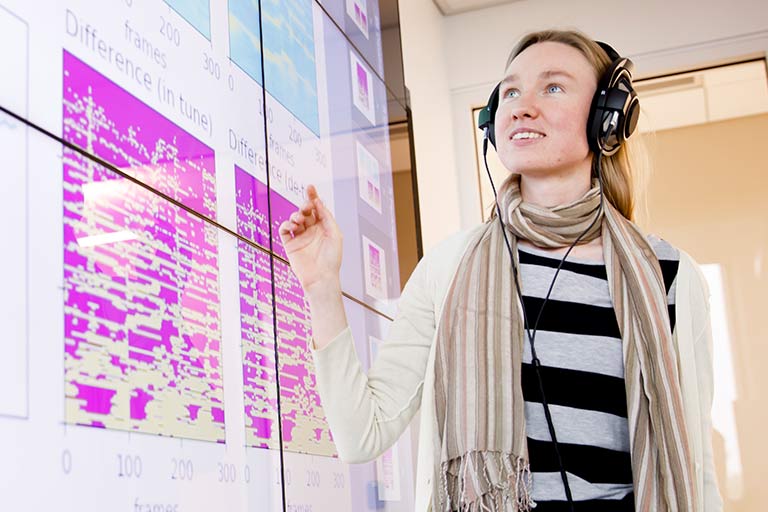Design Practice
Designing from day one, students from a variety of backgrounds (from journalism, industrial design, aerospace engineering, philosophy, graphic design, political science, and countless others) learn to work cooperatively utilizing a variety of proven protocols for effective collaboration.
As they progress through the program, they refine their process, developing their own strategies for completing project objectives, as well as developing new concrete visual and interaction design skills. Projects are sourced via companies large and small, with challenging problem spaces based on the real-world design problems they face on a daily basis.
Research and Prototyping
IU HCI/d students are taught to not only think about design solutions to problems, but to actively invest in a problem space, and to bring those ideas to life. A foundational course in research methodologies exposes students to the finer points of user research, from ethnography and artifact analysis to cultural probes and contextual inquiry.
In addition, an advanced prototyping class teaches students to use the latest open-source hardware technologies to build and implement their design ideas in the physical world. This combination of research and prototyping prepares students with the skills necessary to reinforce and articulate their design thinking in concrete and tangible terms.
Theory
Developing a personal design philosophy is considered to be one of the most important components of the IU HCI/d program, and students are exposed to an interdisciplinary array of theoretical and methodological frameworks to help them shape and sharpen their perspective.
Beginning with a survey course focusing on the history of the field, students are encouraged both to contextualize their designs in the world around them, and to constantly reflect on their process. This culminates in a capstone project in their final semester, through which they incorporate all they have learned across the fields of research, prototyping, and design practice.
Our graduates are equipped with the ability to think deeply about design as both a practice and a dialogue with the world around them, and are prepared to aid others in tackling difficult problems by sharing all they have learned.



